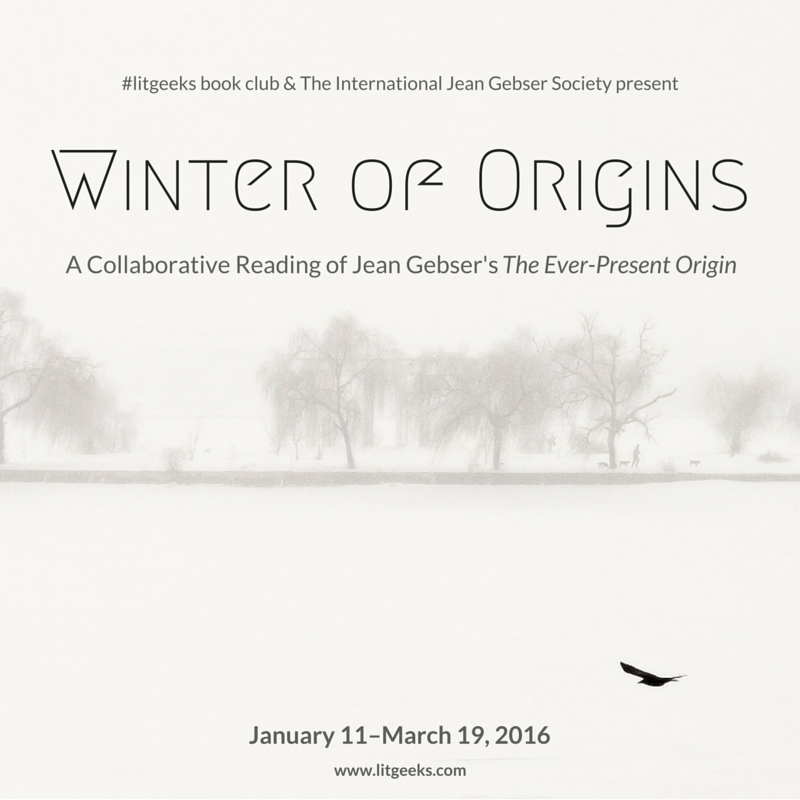“Man is in the world to sustain it as well as himself ‘in truth,’ not for his or its own sake, but for the sake of the spiritual present. It is this spiritual present which elevates wholeness to transparency and frees us from our transient age, for this age of ours is not the present but partiality and flight, indeed, almost a conclusion. Only someone who knows of origin has present-living and dying in the whole, in integrity.”
#LITGEEKS, in collaboration with The International Jean Gebser Society, present a “Winter of Origins,” a participatory reading of The Ever-Present Origin. Quintessential to the “new consciousness” literature is Jean Gebser, a German-Swiss scholar, poet, and intellectual mystic who foreshadowed the 1960s and 70s New Age movement with 1949’s Ever-Present Origin, a 500 page volume examining what he believed was a tremendous upheaval of Western civilization with a “leap” in consciousness at its center.
As Gary Lachman recently noted in “Consciousness Wars” on Reality Sandwich, Gebser came to call this new consciousness as the “integral” structure. Combining a careful reading of historical texts, works of art, innovations in the arts and sciences and transformations of the “occidental” languages, Gebser’s text is as meticulous as it is sweeping, poetic as it is academic.
Decades before the eruption of consciousness culture in the West, Gebser bumping shoulders with Carl Jung at the Eranos lectures and corresponding with D.T. Suzuki. His work would go on to influence a number of notable scholars, such as Ken Wilber’s early transpersonal psychology work and William Irwin Thompson’s writings on the evolution of consciousness. He would, notably, also come to inspire some of Daniel Pinchbeck’s key insights on the nature of time in 2012: The Return of Quetzalcoatl.
At the heart of Gebser’s work, however, is a poetic appreciation of spiritual lucidity –– and so EPO (Ever-Present Origin) is at its core a combination of mysticism, art, and rigorous scholarship. As William Irwin Thompson calls it, “wissenkunst” (knowledge-art). A radical text that might change the way you think about art, life, and the current crisis that is surely reaching a level of transformation that is, at the very least, planetary in nature.
You’re invited to join me, Marco Morelli, Natalie Bantz and many others in taking on a participatory reading of EPO. #LITGEEKS is an “unusually hardcore book club,” intended to take on challenging books in a participatory and social context — we believe that the digital medium can enhance our ability to appreciate and engage with transformational literature, and that literature itself holds a tremendous potential to be an agent of “social poetics.”
You can register on our page here, and join us for conversations both live (via Hangouts and podcasts) and through our discussion forum, Infinite Conversations.
I hope to see you there.
Jeremy D. Johnson
Jean Gebser Society President
Co-Founder #LITGEEKS














